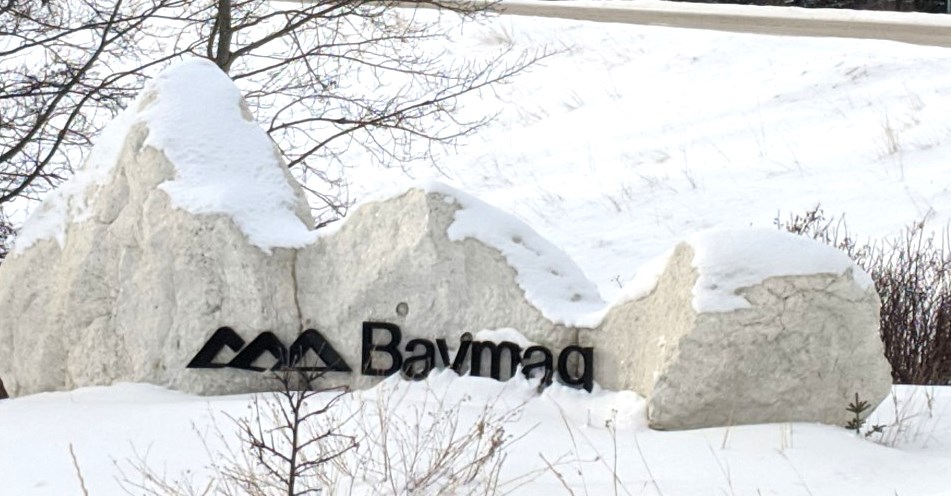BIGHORN – One of the world's leading manufactures of high-grade magnesium oxide (MgO) has announced the expansion of productions, four kilometres west of Exshaw, but one Bow Valley group is airing concerns about the application with Alberta Environment and Parks (AEP).
The application by Baymag to the province, under the Environmental Protection and Enhancement Act (EPEA), was submitted earlier this fall. The application outlines the company's proposal to expand the Exshaw magnesium oxide manufacturing plant to increase production of calcined magnesia from 120,000 tonnes per year to 150,000 tonnes a year.
This change means adding a third calcining furnace to current operations.
Anyone directly affected by the expansion had a 30-day period to provide input into the regulatory application, as allowed by the EPEA. Alberta Environment and Park's regulatory approval centre received one public submission related to the application from the Bow Valley Clean Air Society outlining nine concerns with the expansion.
Of the concerns, the society noted increased greenhouse gas emissions, nitrogen dioxide (NO2) and particulate matter emissions, and decreased overall air quality.
"The conclusions seem to focus on the expansion only (i.e. the project-alone case) and dismiss the exceedances for the overall plant, including the expansion. Given the scale of this expansion, the conclusions must address the overall plant, not just the expansion," Hal Retzer wrote on behalf of the society.
While the letter was accepted by AEP, Retzer said the society is currently going through the process to determine in it qualifies as having directly affected status.
"What we'd like to see is Baymag demonstrate continuous improvement with their expansion and we haven't seen that in the application – so one of our asks is they actually demonstrate some sort of continuous improvement with their expansion in terms of air emissions," Retzer said.
Vice president of operations Neil Bonesky acknowledged the company is aware of the statement of concern submitted to AEP.
"AEP is currently reviewing the submission and once this review has been completed, AEP will respond to both Baymag and the submitter to outline the path forward. As always, Baymag will work to address relevant concerns identified by AEP," Bonesky wrote.
The application process is currently in the review stage.
Operating since 1982, Baymag's high-grade magnesium oxide has several uses, including but not limited to water treatment, soil remediation, animal feed, fertilizer applications, sugar refining, and industrial applications such as pulp and paper, steel and nickel refining and fiberglass.
The crystalline magnesite ore deposits are mined near Radium Hot Springs, B.C., with the ore transported to Baymag's facilities near Exshaw where it is calcined into various grade magnesium oxide.
Currently, the Exshaw plant, located four kilometres west of Exshaw and nine kilometres east of Canmore, along Highway 1A, has two multiple hearth furnaces. The potential expansion is looking to add a 300-tonne silo for feed material, four additional silos for the finished product, a pneumatic conveyor, potentially a product cooler (if necessary), materials handling equipment and a gas suspension calciner with all necessary natural gas burners, fans, heat exchangers, dust collectors and a stack for emissions of filtered exhaust air.
Bonesky said he is proud of the quality of magnesium oxide the company produces, noting that some production plants use coal to create the magnesium oxide, but Baymag uses natural gas, which increases costs upfront, but creates a cleaner product that in the end that can be utilized for more purposes.
Prepared by Kemp Environmental and Regulatory Consulting, the proposal for the expansion outlines minimal impacts. It estimated additional material delivered to the plant would increase traffic on the Trans-Canada Highway and Highway 1A by less than five trucks a day on average, noting the trucks travel to the plant from the mine site located in British Columbia Monday through Friday from the west side of the plant, and does not increase traffic through Exshaw.
The report also noted the existing ore crushing, screening, milling, bagging and shipping systems, gas and electricity systems are adequate and expanded supply systems will not be required.
The finished product will continue to be shipped by railcar, with the increase being less than two railcars per week, bulk truck shipments to increase by less than eight trucks per week, and bag truck shipments would increase by less than nine per week.
The application has yet to be approved by the regulator.






